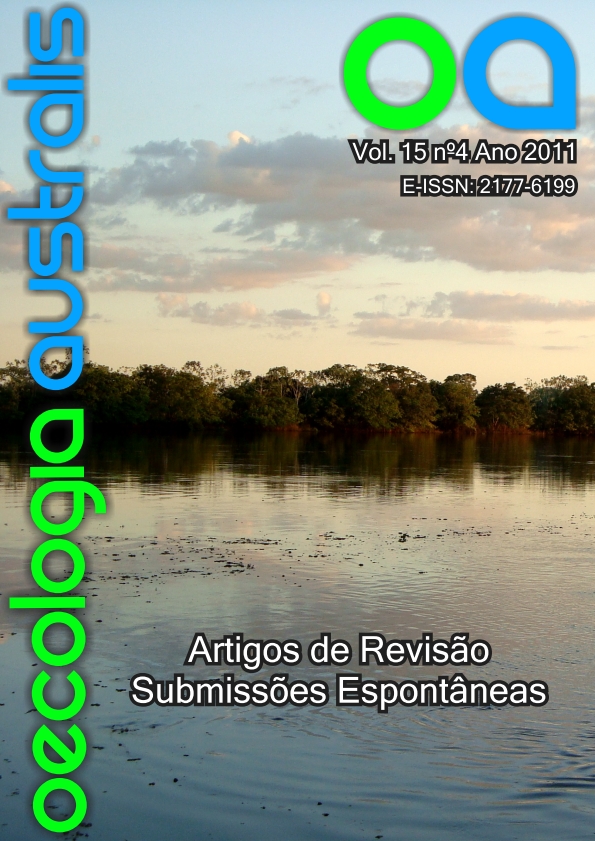MERCURY AND PLANKTON IN TROPICAL MARINE ECOSYSTEMS: A REVIEW
Keywords:
Bioaccumulation, biomagnification, trophic transfer, methylmercury, inorganic mercuryAbstract
Mercury (Hg) is an exogenous and harmful metal that accumulates in the tissues of organisms along food chain. Bioaccumulation by plankton is therefore of great significance for understanding marine processes concerning Hg accumulation and biomagnification throughout the food chain. Plankton has a short life cycle and plankton species composition respond quickly to environmental changes in the water column, making it a water quality indicator. There is a consensus that Hg enters the food chain via phytoplankton, and then is accumulated by the other links in the chain, via trophic transfer. While Hg is bioconcentrated from water by phytoplankton, comparatively little is known about the concentrations, dynamics, and controls on Hg bioavailability in marine ecosystems. Plankton is one of the last matrixes studied by Hg researchers in a systematic manner. As the base of food chain, these organisms have been the subject of several studies on the biological effects of Hg contamination in coastal ecosystems worldwide, such as in Australia, coast of California (USA) and Baltic Sea. However, few studies in the literature have focused on tropical marine ecosystems. In this review, mercury data on tropical marine plankton is presented based on previous studies on the Tropical Pacific, in Arabian Sea, Gulf of Thailand and the South Atlantic. These studies have contributed to our understanding of mercury behavior, fate, and transport of this element in tropical marine ecosystems. The lack of results in the scientific literature about Hg in marine plankton could be attributed to difficulty in collection, preparation and analysis of this type of samples. Collection is dependent of parameters like luminosity, moon phase, tidal cycle, depth of the water column and physical and chemical parameters of water that influence in the quantitative and qualitative taxonomic groups of plankton present.


